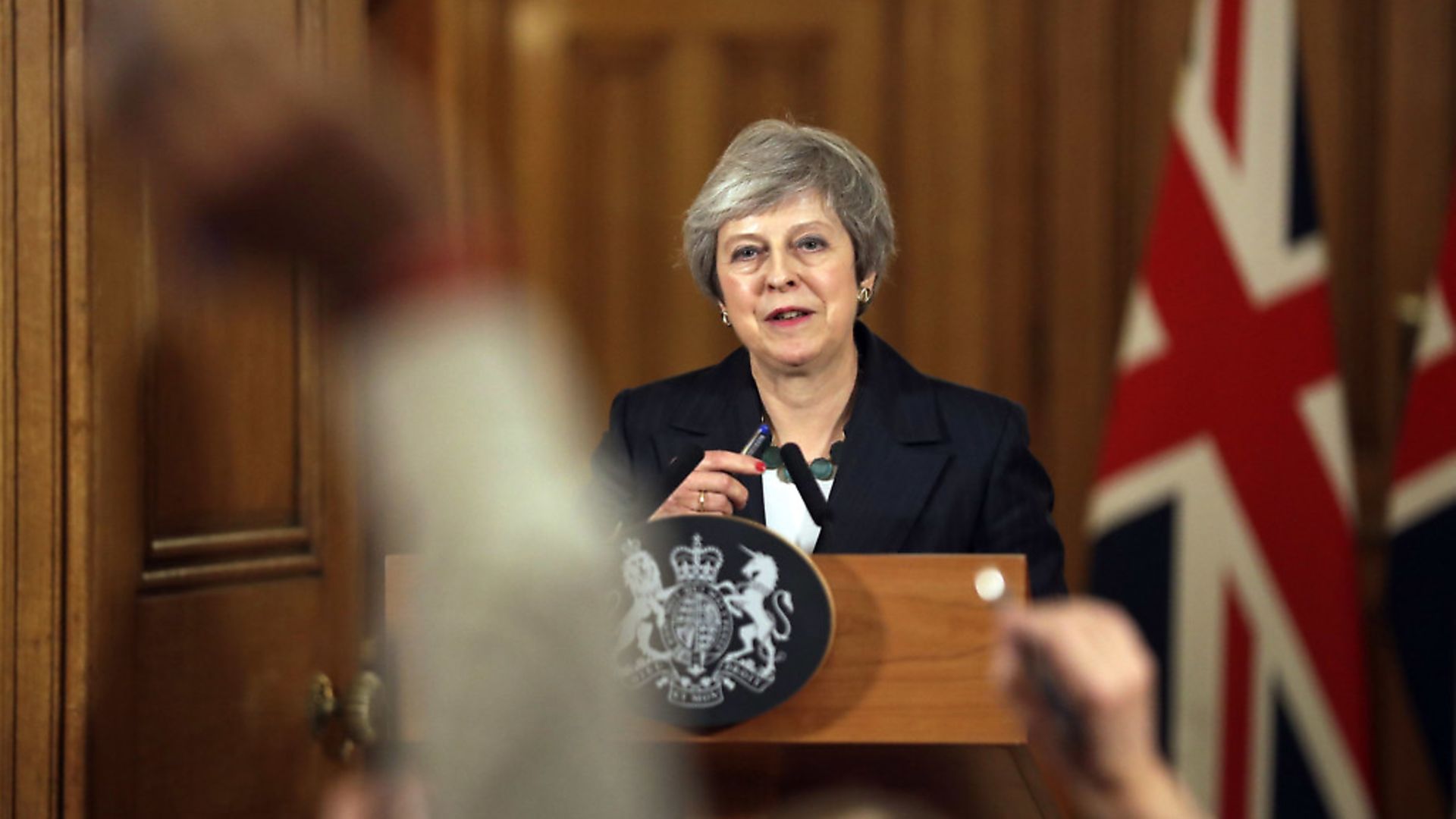
Theresa May is facing yet more challenges on her Brexit plans – with a ‘warning shot’ from the DUP and an objection to the draft agreement from Spain.
Allies on the edge
The prime minister’s DUP allies delivered a shot across the bows by withdrawing their support in a series of Commons votes.
They accused May of ‘seriously’ breaking fundamental promises on Brexit, namely that Northern Ireland will not be treated differently to the rest of the UK after it leaves the EU.
The DUP props up the PM’s minority government and they warned there will be ‘consequences’ if she does not honour their agreement.
The party joined with Labour to cut the government’s majority to just five in a Commons vote on the Budget. They also abstained on a series of other amendments to the Finance Bill.
New Cabinet, old faces
May is due to meet her new-look Cabinet this week – the first to be held after the departure of Brexit secretary Dominic Raab and work and pensions secretary Esther McVey.
It will be a welcome back for new DWP boss Amber Rudd and Stephen Barclay, who steps into the breach as Brexit secretary – albeit in a reduced, domestic capacity.
It has been reported that the so-called ‘pizza club’ group of Cabinet Brexiteers was backing away from a plan to demand Mrs May re-opens negotiations with Brussels on a key element of the agreement.
Michael Gove – who last week turned down the job of Brexit secretary following the resignation of Dominic Raab – Andrea Leadsom, Penny Mordaunt, Liam Fox and Chris Grayling were all reported to be unhappy with the terms over the Northern Ireland border.
Rocky ground on Gibraltar
Spain has threatened to reject the withdrawal agreement unless last-minute changes are introduced on the treatment of Gibraltar.
Madrid is understood to object to an element that states that the details of a deal covering future trade and security relations will be negotiated by the EU and UK.
The Spanish say the future of the Rock should be dealt with separately by Madrid and London, as set out in guidelines published in March 2017.
Spain alone cannot block the adoption of the withdrawal agreement, which is subject to a qualified majority vote of the remaining 27 EU states in Brussels. But its objection further complicates May’s efforts to secure backing for the deal.
More challenges brewing on the continent?
While Madrid has publicly stated its dissatisfaction with part of the withdrawal agreement, several more EU nations are said to have private concerns.
The Financial Times reports that France as well as Spain is pushing for separate EU statements to give more detail on certain areas.
Fishing rights and safeguards on the environment, taxation and business competition could be subject to additional stipulations outside the 585-page agreement.
The Netherlands and some other close UK trading partners are reportedly supportive of the measures, in principle. However, their introduction could inflame Brexiteers’ dissatisfaction with the deal.
A day closer to crunch EU summit
Intensive negotiations are said to be continuing before a special Brexit summit due to take place in Brussels.
The November 25 event will see leaders of the remaining 27 EU states asked to put their stamp on the document, and the agreement will then be sent for ratification to both the Westminster Parliament and the European Parliament.
May said she plans on visiting Brussels before then for talks with senior figures including Jean-Claude Juncker, the president of the European Commission.
The threat from within
Speculation that the PM was on the verge of facing a leadership challenge ratcheted up over the weekend amid reports that a cadre of Brexiteer MPs was poised to submit letters to the 1992 Committee.
However so far there has been no announcement from Sir Graham Brady, chairman of the backbench group, that he had received the 48 missives needed to trigger a confidence vote.
The plot was said to have had stalled, but could be revived after Parliament eventually votes on the deal.
Warning: Illegal string offset 'link_id' in /mnt/storage/stage/www/wp-includes/bookmark.php on line 357
Notice: Trying to get property 'link_id' of non-object in /mnt/storage/stage/www/wp-includes/bookmark.php on line 37






